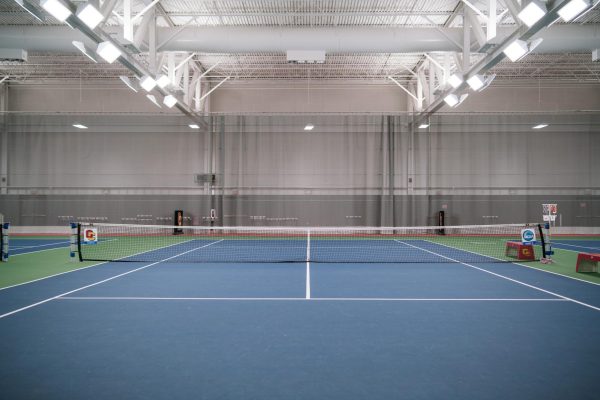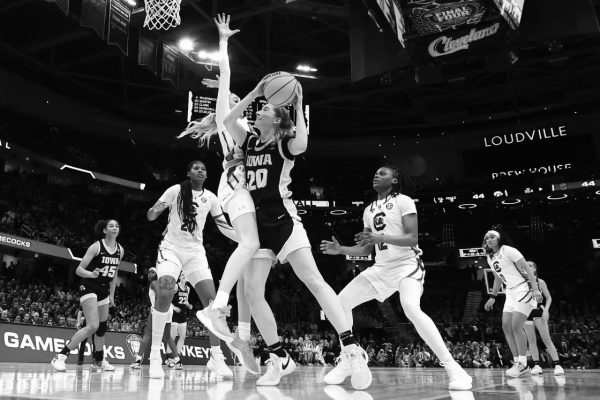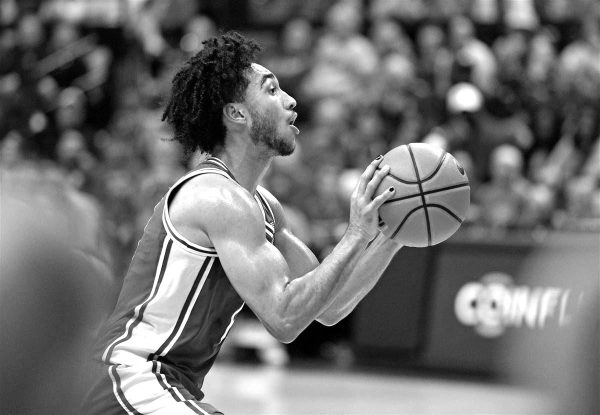Asian Athletes Conquered 2018
Last Wednesday’s Champions League soccer match featured one spectacular moment that caused me to pause and reflect on 2018’s athletic feats. Son Heung-Min, winger for the English soccer team Tottenham Hotspur, netted a beautiful crossed-ball into the goal of opposing team Borussia Dortmund. I should note that I am a die-hard Arsenal FC fan – Tottenham’s sworn enemy. Additionally, Arsenal is not even competing in this year’s Champions League and therefore fails to present me with a logical reason to watch this match at all. Despite the expectations of our respective fandoms that dictate I should detest him with my whole being, I adore Son Heung-Min. First, I am Korean-American, and Son Heung-Min is the captain of the Korean national team (as well as the pride and joy of the entire nation). Second, Son Heung-Min has served as a perfect example of Asian athletic excellence throughout 2018, but his contributions in this regard have largely gone unnoticed.
In some ways, 2018 was, perhaps, the most rousing year of Asian representation in media and popular culture that the United States has ever encountered. Or rather, I should say, more Asian representation than our community has been granted in previous years. The film industry finally opened its doors to Asians in film and released Crazy Rich Asians and To All the Boys I’ve Loved Before; Sandra Oh hosted the Golden Globes and became the first Asian woman to be nominated in the “lead actress” category at the Emmys; K-Pop boy band BTS conquered music-loving teenagers both domestically and internationally; and Hasan Minhaj became the first Indian-American to host a weekly comedy show. All these feats, as well as those that I haven’t mentioned, make me proud to be Asian-American today. But I’m here to bring attention to the presence of Asian success in another realm of media that, unfortunately, does not have strong Asian representation either: popular, high-grossing professional sports.
As a passionate sports fan, I’ve had to confront the harsh reality that many of the athletes I idolize do not look like me. I was brought up revering Michael Jordan of the Chicago Bulls, Marshall Faulk of the St. Louis Rams, Yadier Molina of the St. Louis Cardinals, and French international and Arsenal striker Thierry Henry. It wasn’t until 2012, when the world was introduced to Jeremy Lin, that I realized what I had long been searching for as an Asian-American sports viewer. It wasn’t just that he was an Asian athlete — otherwise I would have felt that distinct feeling of fulfillment that I associate with trailblazers like Yao Ming and Ichiro Suzuki. No, I had long been missing an Asian athlete who could transcend their peers and become a star and cultural icon.
Jeremy Lin put up 38 points against Kobe Bryant and the Los Angeles Lakers on Feb. 10, 2012, solidifying his name in association with one of the most frenzied three weeks that NBA history has ever seen. At Madison Square Garden, spectators shrieked, “Lin!” in the stands and wore his number on their backs with the same magnitude of support that fans had previously harbored for other NBA legends, albeit primarily due to the pure unexpectedness of Jeremy Lin’s domination on the court. After the phenomena of his performance faded and the world moved on to the next NBA fad, I remember wondering when I would ever feel the same way I felt about Jeremy Lin. I wondered if I would next see an Asian athlete with the star-status of someone like Serena Williams, Tom Brady, or Russell Westbrook.
The short answer, for the most part, is that I’m still looking. Jeremy Lin might’ve been the closest figure we Asians have had during his three-week stint known as “Linsanity.” And even then, the phenomenon of Jeremy Lin was tainted by the fact that part of his allure was that he was Asian. But 2018 saw figures who instilled hope in me that we will get our Asian athletic icon one day in the near future.
As I touched on before, Son Heung-Min is certainly gaining acclaim after his impressive performance last year. In addition to being an essential piece of the Tottenham rotation, he led South Korea to win the 2018 Asia Games, which subsequently excused him from mandatory military service. Without his military service interrupting the peak of his successful career, the world of soccer will be seeing the 26-year-old contributing even more on the pitch in years to come. Right now, he is the ninth-top goal scorer in the English Premier League, with 11 goals and five assists. Those numbers will only increase with each matchday.
On the other hand there is Shohei Ohtani, one of the most talked-about baseball players of 2018. His rookie season began with high hopes from fans and critics alike — hopes that he ultimately fulfilled, in my opinion — before ending in an injury that resulted in a Tommy John surgery. Despite his setbacks, the 24-year-old will still be serving the Los Angeles Angels as a designated hitter for the upcoming 2019 season, a role that he is more than prepared to take on. Ohtani was able to show prowess as both a pitcher and a batter, finishing his rookie season with a 3.31 ERA and .273 batting average.
However, perhaps the most triumphant athletic performance by an Asian athlete in 2018 was provided by Japanese-American women’s tennis player Naomi Osaka. At Wimbledon and the French Open, Osaka reached the third round in both events. However, it was her performance in the 2018 U.S. Open that solidified her status as one of the best athletes in the world and a force to be reckoned with. She managed to beat Serena Williams and win her first Grand Slam title. She is now the number one women’s tennis player in the world after clinching her second Grand Slam title at the Australian Open this past January.
2018 forced me to confront that Asian representation in sports matters to me. I can no longer be satisfied with the lack of Asian faces on teams and in competitions. Much like Crazy Rich Asians showed the world that Asian visibility in films is important for elevating voices that otherwise might not be heard, I believe sports serve the same purpose. Athletes have platforms with influence and the ability to make change, and Asians deserve such a platform. Asian-Americans, specifically, might be one of the smallest racial minorities within the United States at less than five percent of the population, but we cannot be overlooked. Through figures like Naomi Osaka and Shohei Ohtani, the world should be forced to reconcile with the fact that we are here, in this country and beyond, and we have voices and experiences that are powerful and worth listening to.





